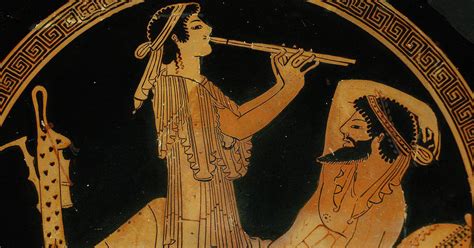The profound allure of Ancient Greek culture extends far into its music—a sonic legacy wrapped in enigma and steeped in historical intrigue. Despite the inexorable march of time erasing concrete evidence, the sonorous legacy of Ancient Greece persists, cloaked in both speculation and scholarly endeavor. As we peel back the layers of history, the task of reconstructing these ancient melodies offers us not just a glimpse into musical methodologies but into the very ethos that shaped such auditory expressions. Interpretations, while varied, often lead us to appreciate the sophisticated musical understanding that characterized this civilization.
The quest to immerse oneself into the tonal world of the ancients isn’t merely an academic pursuit, but a comprehensive cultural experience. This journey into the past is championed by both ardent historians and passionate musicians. To embody the essence of Ancient Greek music, one must embrace the amalgamation of known historical facts with sensibilities that pertain to the reconstruction of ancient instruments and the deciphering of notation systems that have long been obscured. This immersive exploration not only enriches our understanding of Greek heritage but also bridges a connection to a bygone era that laid the foundational stones for Western musical tradition.
In reconstructing these ancient sounds, experts rely on a variety of sources including literary references, artistic depictions, and archaeological findings. The process often involves the meticulous crafting or recreation of instruments like the lyre, aulos, and kithara. These instruments, central to Greek musical life, are painstakingly reproduced based on remnants and iconographic evidences found in sites across Greece and beyond. Techniques such as these illuminate our understanding of how music was woven into the social and religious fabric of Ancient Greece, offering insights into their scales, rhythm, and the overall musical ambiance of the time.
Listeners today are occasionally left polarized by what they perceive of these reconstructed sounds. Some find the unorthodox scales and tones jarring, accustomed as they are to the tempered scales of modern Western music. This discordance is not a reflection of the music’s qualitative aspects but rather an insight into the distinct musical language that prevailed during the ancient times. Legitimate recordings, albeit scarce, and scholarly interpretations like Michael Levy’s passionate recreations on the kithara, paint a vivid auditory picture of what might have been heard in ancient courts and temples.
Extending beyond mere musical reconstruction, understanding Ancient Greek music offers invaluable perspectives on the societal structures, religious practices, and daily life of the time. Music was not just entertainment; it was a pivotal element of ceremonies, a tool for education, and a crucial part of the Greek polis. Through the echoes of these ancient chords and rhythms, we gain more than just melodies; we learn about a civilization’s interaction with the world around them and their quest for aesthetic and spiritual fulfillment.
Thus, the endeavor to encapsulate the essence of Ancient Greek music is as enchanting as it is challenging. Each chord struck on a reconstructed lyre or each note played on a replicated aulos is a tribute to the ingenuity of a civilization whose intellectual and artistic endeavors still resonate with us. As we continue to explore and interpret these ancient sounds, they serve not just as a study of historical musicology but as a resonant echo of human creativity and cultural expression that transcends millennia.


Leave a Reply